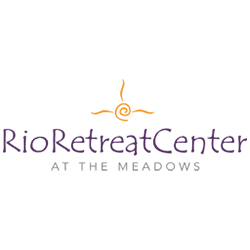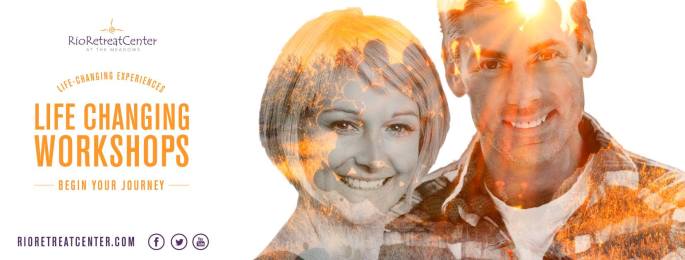-
- Expressive
Arts
Participants
can express themselves through a variety of modalities ranging from
painting to music therapy
to psychodrama.
-
Yoga, Tai Chi
and Acupuncture
Many
alternative or progressive exercises such as Tai Chi and Yoga reduce
stress
by focusing on healing
the mind, body and spirit. We also incorporate Acupuncture, an
ancient Chinese medicinal technique that eases pain, alleviates
stress and promotes wellness.
-
12-step
meetings
Twelve-step
meetings help patients realize they’re not alone on their journey
of recovery. At meetings, individuals have an opportunity to share
their feelings
and hear other people share their experience, strength and hope.
-
Live Music and
Camp Fires
Workshop
participants will have opportunities to unwind and socialize in the
evenings during live music performances and campfire activities.
-
Equine
therapy
Through
interactions between patients and horses, patients learn new ways of
dealing with trauma, addictions and relationships. Trained equine
specialists use the interactions to illustrate the relationship
patterns patients exhibit with people in their lives.
-
Challenge
Courses
Our
challenge courses involve an intricate network of ropes, cables and
logs. All activities are designed to address issues that are being
explored through workshops including group communication, problem
solving, trust, planning, teamwork, facing fear, cooperation,
understanding self and self-esteem.
-
Meals
Workshop
participants will be served three meals per day, each prepared by
The Meadows extraordinary chef. Meals are catered to facilitate
balanced nutrition as part of the overall holistic healing
experience.

The Rio
Retreat Center Can Help
Workshops at the Rio Retreat
Center at The Meadows are designed to help you understand your own
needs, desires, emotions, habits, and everything else that makes you
who you are. The more you know about yourself, the better equipped
you are to engage in healthy relationships
and have an improved sense of self. To learn more about the Rio
Retreat Center at The Meadows or to sign up for one of our
groundbreaking workshops, call us at 866-997-8770
or fill out the form below and a representative will be happy to
provide you more information.
Content Source : Healing Trauma Workshops
THRIVE is an experiential intensive that takes you to the next level of recovery.

Hanging onto old pain keeps us preoccupied with our past and anxious
about our future, rather than living in the present. Releasing
dysfunctional roles and embracing new ones empowers us to experience our
full potential. But before we’re able to release worn out roles, we
need to give voice and shape to them. This action oriented process will
provide a unique opportunity to engage in an exploration that will lead
you to a greater sense of aliveness and purpose: a life changing new
experience carved out of time to energize and revitalize —to live your
actualized life!
The workshop will emphasize:
- Forgiveness
- Resilience Training
- Post Traumatic Growth
- Consolidating Recovery Gains

To THRIVE is to……
Engage: More fully and mindfully in your relationships and day-to-day life.
Embrace: A deepened and more purposeful sense of self.
Expand: And revitalize your life roles.
Energize: Forgive the past to live more fully in the present.
Empower: Take ownership of your own healing and attitude towards life.
Workshops run 8:30 a.m. to 4:30 p.m., unless otherwise noted. The schedule is flexible, accommodating the group process.
Content Source :
Workshops For Self Improvement
One of the topics emerging in
the field of sex addiction and partner trauma right now is the idea
of couples crossing the threshold of vulnerability again after
betrayal. The addiction treatment field and partner trauma field have
made great strides in keeping addicts in recovery and making sure
that partners are finally feeling heard and validated. Both the
addicted partners and the betrayed partners are making tremendous
progress in the core tasks that are required to get them back on a
level playing field emotionally, where the addict is no longer
keeping secrets, the partner feels validated, and amends are made.
Though we’ve done well in
helping each partner within a couple on an individual basis, we are
just beginning to apply modalities that help couples to heal
together. Both couples and therapists seem to be struggling with how
to begin that process.
What Does It
Take to Trust Again?
“
Can I trust you again?”
is the question that is top of mind as couples begin to take steps
toward reconnecting. It’s a matter of being willing to cross the
threshold of vulnerability again, and there’s no easy way to do
that. It’s an act of courage.
One of the things the couple
has to do is make a decision about whether they are going to move
forward or not. So many couples are stuck in a phase of indecision.
They decide not to leave each other, which is not the same as
deciding to move forward in vulnerability again. I think as
therapists we need to start examining ways to support couples in
making the decision to stay and truly move forward or go. When
therapists meet their betrayed client’s primary concern—“If I
trust him again, am I going to get betrayed again?”— they often
resort back to “the individual as client” modality. They begin to
focus on the old narrative of the betrayal and making sure the addict
stays in recovery. If the couple feels helpless and frustrated the
therapist often does too. They then inadvertently move away from a
couple’s paradigm and into an individual client paradigm where they
end up rehearsing and reinvigorating the old strategies the couple
used for coping with the pain of the betrayal. Many of these
paradigms are helpful on an individual basis, but they don’t help
them move into vulnerability again as a couple.
Therapists don’t lead
enough discussions about how the partners can make a new decision
about moving forward as a couple.
One of the critical pieces in
making the decision to move forward in vulnerability is helping the
couple grieve the loss of the first romance together. Because, the
truth of the matter is that once there has been a betrayal, the first
romance is over. It is not the same anymore and will not be the same
again. That is often a painful reality for both the addict and their
partner to face.
I designed a
couples workshop at The Meadows that guides couples through the
grieving process. It is incredibly powerful. Couples do an art
therapy project where they say goodbye to their first marriage. They
also destroy a symbol of their first marriage, then take the pieces
and reformed them into another object that represents their moving
forward. Saying goodbye to the first marriage and making a new
decision about what moving forward would look life for them, has
proven to be exactly what most of the couples require to truly begin
to heal together.
Content Source: Couples Retreat Az







